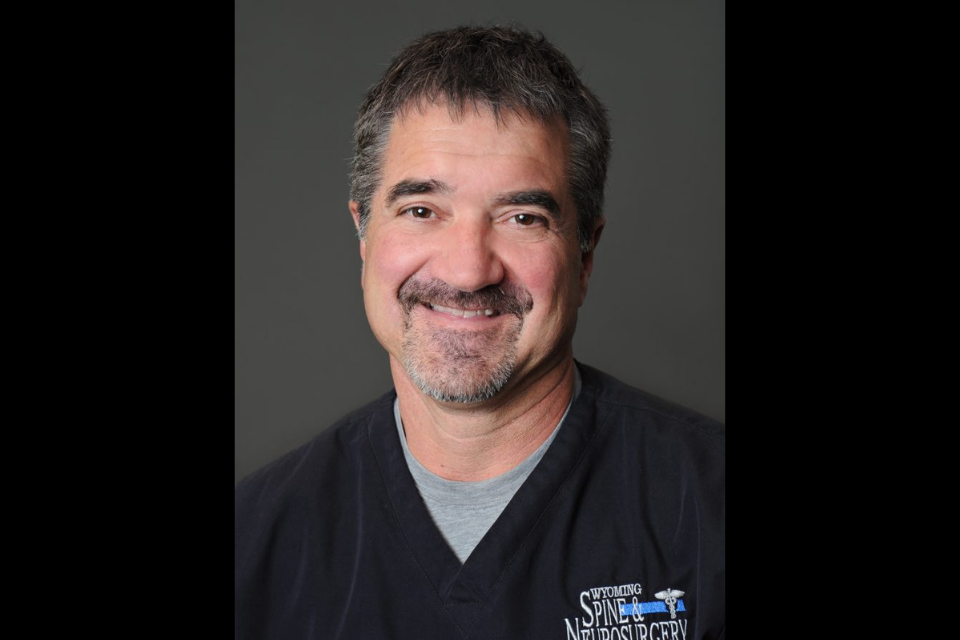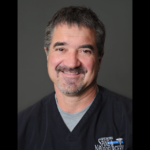New Technology Used in Spinal Surgery Performed at Cheyenne Regional Medical Center

Dr. Steven Beer is the first neurosurgeon to use the OsseoScrew in a U.S. surgery
Cheyenne neurosurgeon Dr. Steven Beer is the first surgeon in the United States to use a recently approved device while performing a spinal surgery at Cheyenne Regional Medical Center on November 29.
“The OsseoScrew spinal fixation system was designed to improve the surgeon’s ability to secure the spine in clinical conditions where the bone is compromised or weaker than normal,” Dr. Beer said.
OsseoScrews have been used in Europe for several years on patients with bones weakened by cancer, osteoporosis, arthritis and related conditions and were resubmitted for approval in the United States in 2017. The U.S. Food and Drug Administration approved their use earlier this year in surgeries on spines weakened by cancer.
“In the surgery done at CRMC, the screws were placed seamlessly and resulted in excellent fixation for the patient,” Dr. Beer said.
“I was getting shots and doing therapy to help relieve the intense pain in my lower back,” said Virginia (Ginger) Barkell, the 69-year-old patient who underwent the surgery. “But the minute I’d get active it would hurt again.”
Barkell, who lives on a ranch near Pine Bluffs, wanted to have the surgery so she could return to a more active lifestyle that includes riding horses and caring for several dogs and chickens.
The day after surgery, Barkell said she was already having less pain in her lower back related to her previous condition.
“Dr. Beer was able to clean up and straighten that area of my back,” she said. “This turned out to be a wonderful thing.”
Lab tests show that OsseoScrews have nearly 30 percent greater anchoring strength compared to the traditional pedicle screws used for spinal stabilization.
“OsseoScrews can address weakened spinal bone problems, which historically have had limited and less desirable options for treatment,” Dr. Beer said.
In Ms. Barkell’s case, “the screws clearly held more firmly,” Dr. Beer said, “making us confident we had achieved solid stabilization for her. Without this technology we would have had to perform a lengthier procedure, which would have been riskier for her.”
Dr. Beer, who is in practice at Wyoming Spine & Neurosurgery, was involved with the original development and testing of the OsseoScrews in a lab setting.
“As people in the United States live longer, age-related conditions like cancer, osteoporosis, osteoporotic spinal fractures, acquired spondylolisthesis, spinal stenosis and adult spinal deformity will likely become more prevalent,” Dr. Beer said. “The OsseoScrew is a much-needed innovation that will change the way we address spinal instability and pain in people with fragile bones.”


